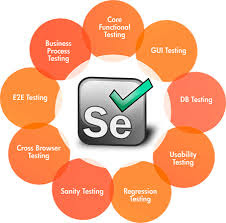The Evolution of Artificial Intelligence: Shaping Tomorrow's World
I. Introduction
In this opening section, we’ll establish a foundation for understanding Artificial Intelligence (AI). We’ll begin by defining AI, then explore its historical roots, and conclude by highlighting the significant role AI plays in our world today.
A. Definition of Artificial Intelligence
- Artificial intelligence (AI) is a branch of computer science that deals with the creation of intelligent agents, which are systems that can reason, learn, and act autonomously.
- AI research has been highly successful in developing effective techniques for solving a wide range of problems, from game playing to medical diagnosis.
AI is a rapidly evolving field with vast potential. AI systems are designed to learn and improve from data, enabling them to automate tasks, identify patterns, and make data-driven predictions.
B. Historical Background of AI
- The concept of intelligent machines has been around for centuries, but the field of AI research is generally considered to have begun in the 1950s.
- Alan Turing, a British mathematician and computer scientist, is considered one of the founding fathers of AI. He proposed the Turing test, a test of a machine's ability to exhibit intelligent behavior equivalent to, or indistinguishable from, that of a human.
Early AI research focused on developing symbolic AI, which attempts to simulate human reasoning using logic and symbols. However, this approach proved to be limited in its capabilities. In recent years, machine learning has become the dominant paradigm in AI research. Machine learning algorithms can learn from data without being explicitly programmed.
C. Significance of AI in Today's World
- AI is now being used in a wide range of applications, including:
- Self-driving cars
- Facial recognition
- Natural language processing
- Fraud detection
- Stock market prediction
- Medical diagnosis
AI is having a transformative impact on our world. It is automating tasks, improving decision-making, and creating new opportunities for innovation. As AI continues to develop, we can expect to see even more profound changes in the years to come.
II. Current Applications of Artificial Intelligence
AI is making significant inroads in the healthcare sector, offering a variety of benefits:
A. AI in Healthcare
- Improved diagnostics: AI algorithms can analyze medical images to detect diseases such as cancer with greater accuracy and speed than human radiologists.
- Personalized medicine: AI can be used to analyze a patient's medical history and genetic data to develop personalized treatment plans.
- Virtual assistants: AI-powered virtual assistants can provide patients with 24/7 support and answer questions about their health.
B. AI in Agriculture
AI is being used to improve agricultural practices and increase yields:
- Precision agriculture: AI can be used to analyze data on soil conditions, weather patterns, and crop growth to optimize the use of fertilizers, pesticides, and water.
- Robot-assisted farming: AI-powered robots can be used for tasks such as weeding, harvesting, and monitoring livestock.
- Disease and pest prediction: AI can be used to analyze data to predict outbreaks of diseases and pests, allowing farmers to take preventive measures.
AI is transforming the transportation sector, leading to the development of new and innovative technologies:
- Self-driving cars: Self-driving cars have the potential to revolutionize transportation by making roads safer and more efficient.
- Traffic management: AI can be used to optimize traffic flow and reduce congestion.
- Delivery drones: AI-powered drones can be used to deliver goods quickly and efficiently, even to remote locations.
III. Future Potential of Artificial Intelligence
AI has the potential to revolutionize many aspects of our lives. Here





Comments
Post a Comment